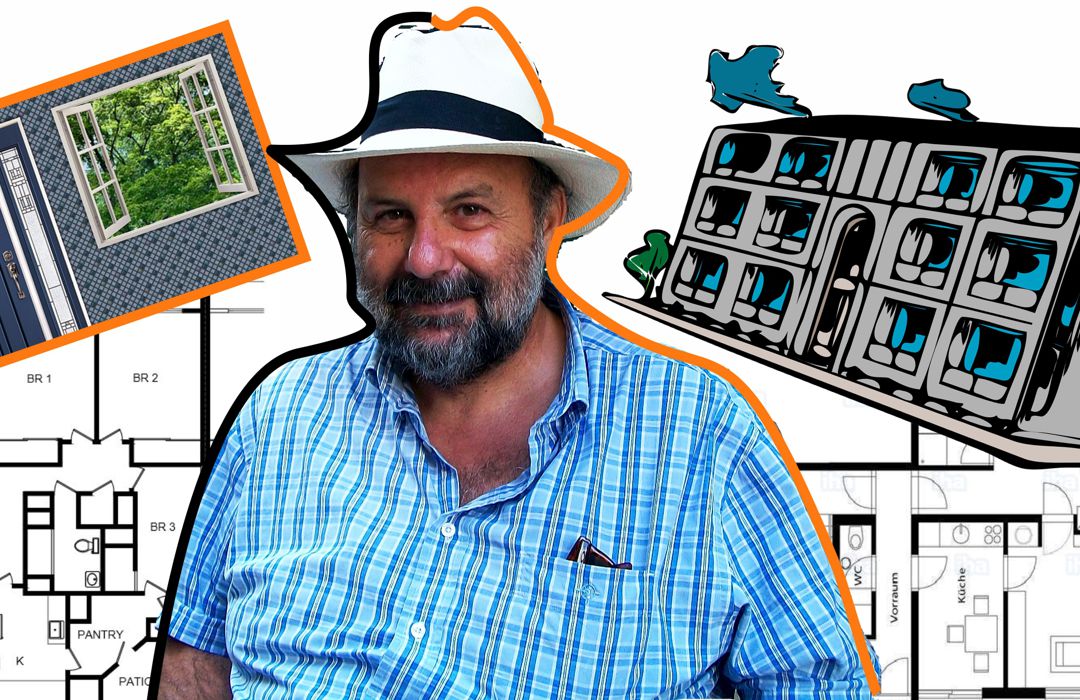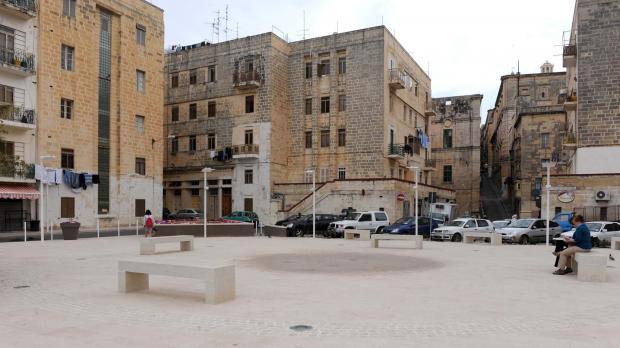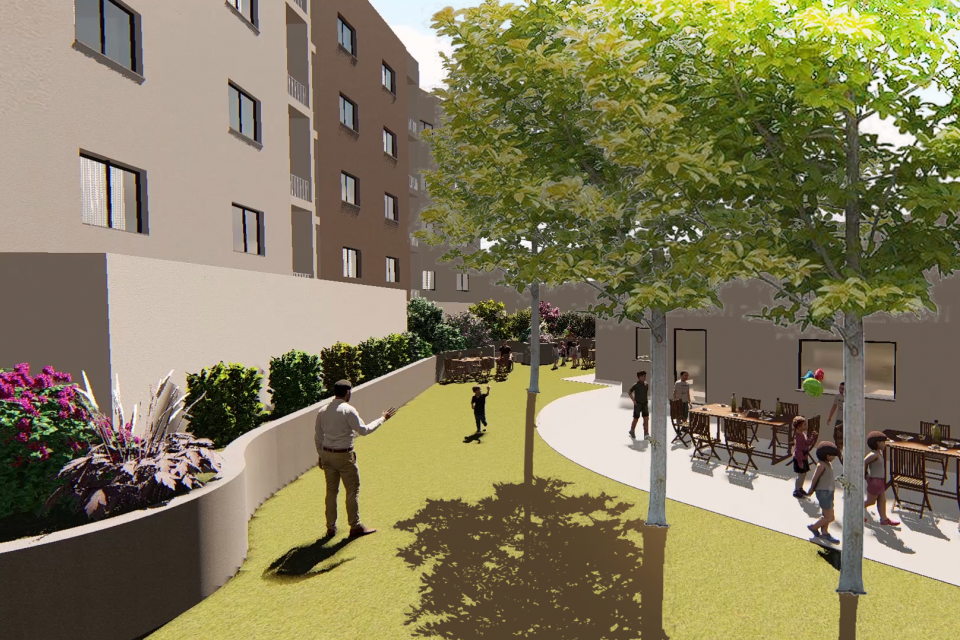
Finding a solution to the housing affordability problem amid a frenetic property boom was no easy task. Willingness to challenge the neoliberal establishment is not enough. To achieve that, progressive policy makers must also possess the economic proficiency and the political acumen. This person was Joseph Bartolo.
by Kurt Xerri
Collage by the IotL Magazine
[dropcap]F[/dropcap]or those who might not have known him closely, Joseph Bartolo was one of the most distinguished authors of contemporary Maltese housing policy. In reporting his passing, various newspapers underlined his position as the Chairperson of the Affordable Housing Board within the Housing Authority, a role that he had occupied since January 2019. However, his contribution to the local political scene was greater.
Bartolo’s distinctive feature was that he spoke the financial language of the more vulnerable. His deepest commitment was towards identifying, elaborating and realising economically viable alternatives to the logic of financial markets, in order to relieve the plight of peripheral groups.
Bartolo, a Ruskin college graduate with a past in diplomacy, mastered the discipline of political economy; he acknowledged that neoliberal politics did not operate according to the purported level playing field utopia. He was well aware that the realisation of fundamental human rights, such as that to an adequate standard of living, has increasingly been made to depend on the unequal financial worth of individuals, rather than their intrinsically equal value as human beings.
Bartolo, a Ruskin college graduate with a past in diplomacy, mastered the discipline of political economy.
Remarkably, this early understanding of the systemic failures of mainstream ideology, enabled him to find ways to elude it. This brief article is meant to illustrate the context in which Bartolo’s final policy proposals are to be interpreted and, most of all, their significance in contemporary politics.
Housing from a Political Economy Perspective
Malta, like most of the western world, has gradually come to embrace the compelling doctrine of neoliberal ideology. According to this variant of capitalist worldview, the value of an individual would have to be measured against their ‘credit worthiness’ or ‘credit score’ rather than the mere fact of their existence.
With time, this approach had a devastating effect on the ideal that housing is a fundamental entitlement for human beings. Nowadays, access to ownership depends entirely on the extent to which a bank considers a person suitable to receive financial credit whilst access to rentals depends on one’s financial capability to keep up with the ‘market’ rent.
Thus, with the passive complicity of the political state, this process led to housing being treated as a commodity rather than a necessity. In practice, housing no longer remained a right available to all, but a product limited to those who could afford to purchase or rent it.
By the 2010s, the Maltese housing market had become a monopoly of the private sector: house purchases were completely financed by commercial banks and rental supply was dependent entirely on private landlords. The social housing sector was not only saturated, but the government had, since a decade earlier, halted the construction of new public units.
By the 2010s, the Maltese housing market had become a monopoly of the private sector.
This latter decision was only the last to mark the definite withdrawal of government from housing policy. Such rolling back of the frontiers of the state had started in the 1990s with the privatisation of the Lohombus Bank (the state-created mortgage bank which enabled the success of the Home Ownership Schemes*) and the complete deregulation of the private rented sector.
The main policy actors from that point onwards became the commercial banks which, with HSBC’s entry into the local market, led to a stronger competition for mortgage loans. Loan repayment terms, in general, were extended from 25 to 40 years and down payment requirements reduced to a minimum.
The spiralling of house prices was undoubtedly due to the supply of money directed towards house purchases rather than the actual increase in demand for housing units (as a case in point, the 2011 Census, revealed that one out of every four houses in Malta was completely vacant).

In the light of a burgeoning property market, the building of social housing almost seemed like an offence to the efficient and beneficent operations of the free market. The government’s bureaucratic and allegedly unaccountable management of public units supported this narrative. By 2016, State officials in charge of the provision of social welfare services would themselves declare that “it would be unjust with private landlords if the rental market had to be regulated”.
The bottom line of this policy was that solely individual households—and no longer the state—became responsible for acquiring a home. Put differently, it was no longer the state that decided housing policy, but the private sector consisting of commercial banks and private landlords.
The Post-2014 Property Boom Housing Market
The great paradox of the booming years was that whilst economic figures were pointing steadily towards economic growth, homeseekers—especially new entrants into the housing market—did not afford bigger or better housing. Individuals and couples on ordinary incomes could not keep up with the increasing number of households with higher wages, which were bidding up housing prices, often beyond the reach of the former.
In the meantime, the rising demand for housing units certainly created the favourable environment for developers to expand their market.
People assumed that, on the basis of the facile assumption that supply always naturally catches up with demand, prices would be rendered more affordable by the surging supply of new properties. This seemingly ‘obvious truth’ was, however, erroneous since the market logic would never allow any new housing supply to work against house prices. This would not be in the interest of housing producers nor, more generally, in that of households whose wealth is represented by the ownership of their main residence.
People assumed that, on the basis of the facile assumption that supply always naturally catches up with demand, prices would be rendered more affordable by the surging supply of new properties.
By 2018 it had become clear that, mostly due to the rapid demographic changes and their effect on property prices, the free market and private enterprise were failing to provide the adequate and affordable homes that ordinary people needed and should have a right to. This did not seem to agitate everyone.
The more devout free marketeers seemed to have no issue with low-income individuals having to settle permanently for makeshift accommodation, since the ideology suggested that these only have their ineptitude to blame. More lamentably, according to this problematic view, by building social housing, the government would only be rewarding those individuals’ lack of self-initiative.
Bartolo’s role was precisely crucial in identifying solutions through which the state could reclaim its position as a central actor in housing policy.
The 2018 White Paper on the private rented sector was, therefore, written in a climate where ‘housing as a human right’ was no longer an obvious public aspiration but, on the contrary, a ‘radical’ and politically insidious notion. Bartolo’s role was decisive in identifying solutions through which the state could reclaim its position as a central actor in housing policy and reassert every individual’s fundamental entitlement to adequate accommodation.
The Affordable Housing Project
Joseph Bartolo acknowledged that the recent affordability crisis warranted necessary short-term relief measures such as rent and mortgage subsidies, even if in so doing, the state would still be playing by the rules of the financial game. However, he strongly resisted the notion that there is no alternative to the hegemonic power of capital and, more importantly, he understood that the solution did not lie in building more, but in building differently.
His intuition was, therefore, to adopt non-market solutions which could eliminate profit from the house building equation.

Private (for profit) development seemed less interested in building affordable units, since no investor would voluntarily choose to operate at a reduced profit. This assumption would, however, change if the development were to be carried out by a foundation with the specific purpose of providing affordable housing. Such development would, especially if afforded a favourable fiscal treatment, not seek market-related profits but the financial return sufficient to make it avoid losses.
If afforded a favourable fiscal treatment, development of affordable housing would not seek market-related profits but the financial return sufficient to make it avoid losses.
Announced on the 4th of January of this year (a date which also coincided with Bartolo’s last appearance in public), the Affordable Housing project was a concrete attempt at testing out this concept in the local market. The pilot project was taken on by the Housing Authority, through financing by the Malta Development Bank. The debt incurred to build the 118 planned apartments will be amortised through the affordable rents (€300-€500 per month) paid by the project’s beneficiaries, over the term of the temporary ground lease granted to the Authority by the government.
Bartolo’s plans, however, went even further than this social enterprise.
His longer-term ambition was to witness the revival of a specialised financial institution to facilitate housing, similar to the Lohombus Bank in the 1970s and 80s, which would enable the state to reacquire a stake in the mortgage lending market. This was, perhaps, a policy that required a much greater momentum, but in combination with other measures, it would have certainly reaffirmed the state’s role in guaranteeing adequate housing for all.
Bartolo’s longer-term ambition was to witness the revival of a specialised financial institution to facilitate housing, similar to the Lohombus Bank in the 1970s and ’80s.
Joseph Bartolo’s political and economic creativity has been crucial for encouraging the political state to react to the dynamic forces that threatened the decent livelihood of local households. He utilised his immense multidisciplinary knowledge for the good of the community, which rendered him not only a true human rights advocate but one of the unsung heroes of our time.
Most of all, it means that contemporary Maltese housing policy, as recently revised, cannot be grasped without acknowledgment of Bartolo’s contribution and his progressive ideas on housing.
Until we meet again, Joe.
*C. Vakili-Zad, Housing Policy in Malta, (Marsa: Union Print, 2007)


Leave a Reply